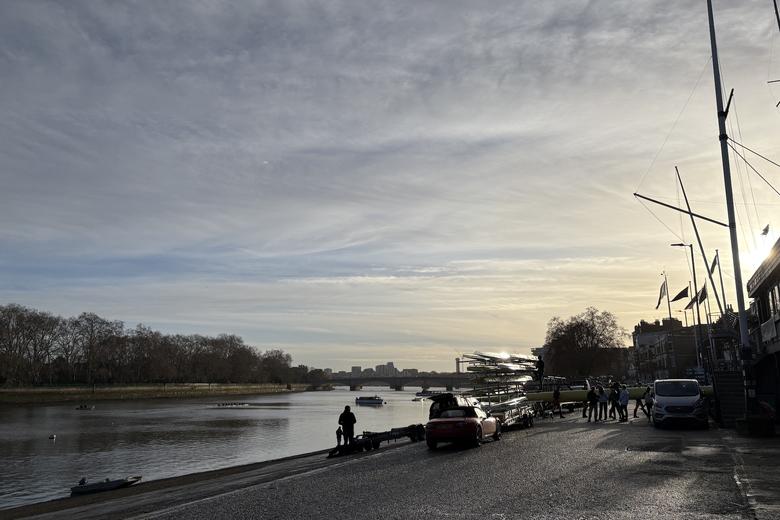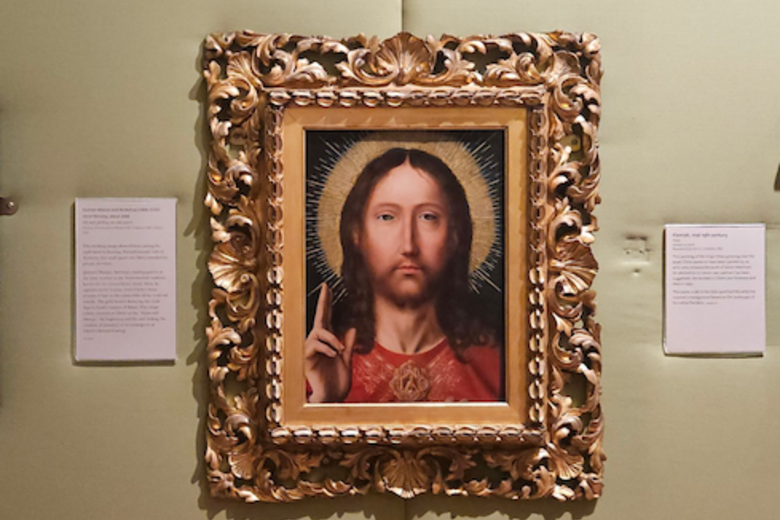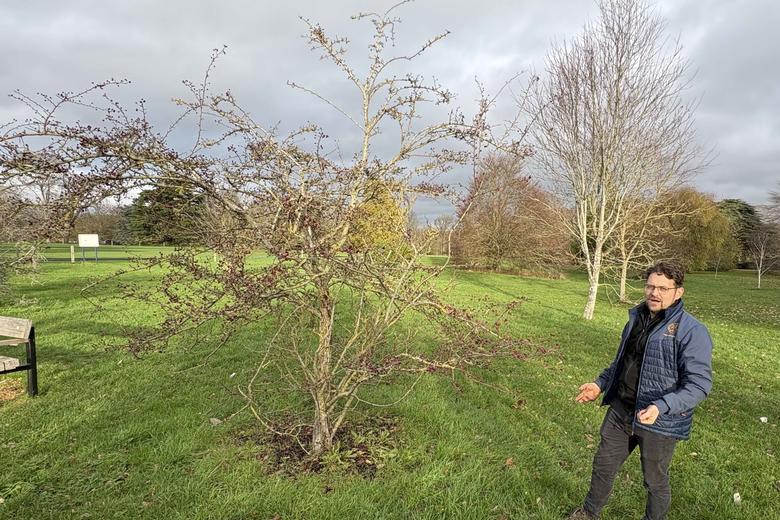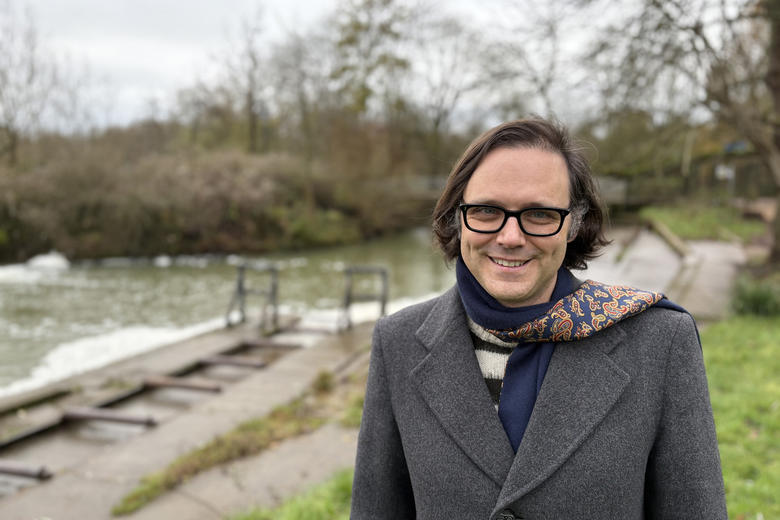OXFORD UNIVERSITY ON MONT BLANC: THE LIFE OF THE CHALET DES ANGLAIS

OXFORD UNIVERSITY ON MONT BLANC: THE LIFE OF THE CHALET DES ANGLAIS
A new book unexpectedly sheds a huge amount of creative light on Oxford
Published: 28 April 2022
Author: Richard Lofthouse
Share this article
Oxford University on Mont Blanc: The Life of the Chalet des Anglais
By Stephen Golding
Profile Editions 2022, £30
I suspect many Oxonians and alumni generally, will not have heard of this magnificently primitive French alpine chalet that has been visited by tutors and students for well over a century.
This volume about the Chalet des Anglais (‘chalet of the English’), as it become known locally after its completion in 1865, is a labour of love carried out in many Oxford archives across a decade by author and Emeritus Fellow in Radiology at University College, Stephen Golding.
Published by Profile Books in April 2022, it goes most of the way to closing a significant knowledge gap, the only previous published source being a rarely-encountered memoir by the main protagonist of the plot, Francis Urquhart, published posthumously in 1936.
Francis Urquhart (Balliol, 1890) was given a college fellowship in history in 1896, also at Balliol at a time when Balliol was coming into its greatness.
The matter is of historic note because he was the first Roman Catholic fellow to be appointed in Oxford since the Reformation, following a recent relaxation on a ban by the Vatican.

But he had acquired the Chalet des Anglais from his father via his brother in 1896 and it was arguably the more significant of the two prizes, launching as it did his passion for conducting reading parties to the alps.
For four solid decades from 1891, Francis proceeded to invite select groups of typically good looking and generally impressive Oxonians to the Chalet. Future Prime Ministers featured on the guest list, giving the author here some historiographical traction.
Yet if the Chalet and its environs were a person it would be the star of the show, and in that sense this displaced, decamped slice of Oxford that materialised and rematerialised with an ever-changing cast from summer to summer across the tumultuous years of the twentieth century, is a rather extraordinary tributary of Oxford University’s institutional history, a piece of upstream Cherwell to, say, OUP’s ‘River Thames’ eight volume history of the University of Oxford.
There’s a huge amount of character on offer here. David Urquhart built the original chalet in 1865. He was a rich and eccentric and infuriating High Victorian diplomat/gadfly character preoccupied with Turkish baths and the unverified conviction that high altitude was good for brain function. Guests left in a haze of exhaustion.
Francis possessed the worldly sheen that only Catholicism can offer; his disconcerting nickname ‘Sligger’ at a time when breakfast was brekkers, lectures were lekkers and the otherwise very ‘sleek’ Urquhart became universally and only referred to as Sligger.
His reading parties were typical of the time rather than unusual, notes the author, yet by the time of his death in 1934 he had evidently established a tradition so strong that successive tutors from a variety of colleges (centrally Balliol, New College and Univ) have maintained the legacy and found the money to keep the whole thing going right through to 2022.
There are several different histories in this volume.

First there is the history of the chalet itself which was built in 1865, burned down and rebuilt in 1906-8, burgled multiple times by the Communist resistance during World War Two and generally subjected to all the outrageous weather events of being situated at 5,525 feet on the Mont Blanc massif.
It still stands tall but as the author notes, ‘it’s a single skinned, wooden structure with one stove, stream water and bottled gas for cooking and refrigeration.’ It’s more akin to a mountain refuge than a well-appointed gîte and has typically been occupied only during the long summer vacation. ‘Snow can pile right up to the eaves during winter.’
Then we move into four decades of Oxford reading parties, the Sligger era, and only then into myriad late-twentieth century dons and students, replete with anecdotes about so-and-so who fell into a stream and lost his glasses, and less trivially some tragedies where individuals were lost in climbing accidents.
That later period broadened the cast considerably, and different colleges feature, Corpus Christi in particular for a while, care of the different dons who were invited and then took up the chance to revisit with their own parties as opportunity and timing dictated. But the central three colleges remain to this day Balliol, Univ and New College.
More than anything else the reader gets a distilled version of academic life, the author at a later stage in the book led by his material into a broad examination of the Oxford tutorial.
Lofty thoughts had in the salon or garden of the chalet, invariably over books to do with classics or philosophy (less specifically since Sligger’s time) magnified by the grandeur of landscape and shorn of distractions; perhaps quite discomforting, yet the memory stayed with the participants to an extraordinary degree.
In this regard the atmospherics of the alps inform the book and stay with the reader, exceeding an occasionally laborious list of names, all of whom appear to have considered themselves Great either in their own estimation or in the eyes of immediate contemporaries – a rather self-assured and less appealing aspect of Oxford particularly when viewed from ‘outside.’
This is where we are back to Sligger, who had an eye for the great and good. Future Prime Minister and University Chancellor Harold Macmillan (Balliol, 1912) visited, for instance, as did Asquith family members and the archaeologist and diplomat Gertrude Bell (LMH, 1885).
The don who today occupies Sligger’s room in Balliol, the historian Professor Simon Skinner, writes, ‘It was a celebrity thing to drop in on Sligger: when I took up occupancy of [the room] 18:4 the college archivist showed me loads of pictures of various VIPs all sat in the same position in the bay window seat in my room, the Ashmolean in the background: Mallory, Waugh, Gandhi etc.’
There was the cosy notion of the ‘chaletite,’ fostered by Sligger to the point where to have been invited to the Chalet at all was an honour: you were part of an elite floating within (or above) Oxford. It rolled across too large a timescape to have been quite like the Cambridge Apostles but there are echoes.
There was the powerful esprit de corps of all-male company. The Chalet was primitive at a time when civilization was deemed to have become rotten.
Contrary to what some readers might expect, however, the prevailing atmosphere was neither saintly nor over-worldly. It’s not the terrain of Oscar Wilde hunting for pleasure with youngish-men and neither is it the Catholic-sexual crusade of Eric Gill at Ditchling.
Both Sligger and his emulators appear to have been too seriously and widely read to allow for crusades, and if crusading there was it came from Francis’ father David and his obsession with the Hamman, one of which was built into the first chalet’s ground floor design and then destroyed in the fire of 1906.
The diet was mostly vegetarian because of cost and logistics. Wine was only drunk in a simple table format at dinner. Conversation was banned during study periods but encouraged at dinner; everyone read furiously morning and afternoon.
Most visits were punctuated by epic hikes, the itinerary for which would give pause even to a twenty-first century endurance athlete with state-of-the-art kit.

The whole thing remained, says Golding, in loco parentis as any tutorial should and does; but it was in the more relaxed and less library-bound air of the mountains. It worked because it worked and friendships made there were unusually enduring, according to the sources.
If anything, the Chalet tradition of the reading party seemed to reveal the true nature of an Oxford education with tutorials realised to a greater degree than possible in college owing to the less distracted atmosphere and informality of the mountains.
This theme comes to bear very much on Golding’s book in its later reaches, where the author is almost forced to ask by weight of anecdote, what made the formula work so well.
One paradoxical answer lies beyond the books and has more to so with the pared back yet practical, non-academic quality of mountain life:
‘The atmosphere is unique and many chaletites tie their memories to a particular feature: the smell of wood smoke in the salon, late afternoon sunlight slanting through the windows, candlelit dinners, or the smell of morning dew in the undergrowth, for example. Such memory tags are simple but powerful.’
The author, who is also Chair of the Board of the Chalet Trust and in that sense open to accusations of being parti pris, could have been overcome with golden shafts of sunlight.
He hasn’t, but he can’t overcome his sources. At some points the book is weighed down by its enormous cast. The memories are a bit too golden, the minds too brilliant and the self-confidence backlit by British global pre-eminence, particularly in the Sligger era.
It’s a world away from Oxford in the age of access, racial equality, MeToo and Black Lives Matter.
And yet, if there is one cumulative insight it’s the importance of taking the wander in the college garden, or doing something else besides studying, around dedicated studying; of finding a way to distract one’s mind with a non-academic pursuit that paradoxically unlocks the most creative thinking.
In this sense the unexpected but enduring purpose of the Chalet was to realise an Oxford so often not experienced in Oxford.
I’m not sure this message will thrill current undergraduates whose time at Oxford was truncated by pandemic restrictions, the idea that Oxford is best realised away from the actual place of Oxford.
But if we correct for this recent hiatus, the overwhelming message is quite clear.
New College’s Sir Christopher Cox (1899-1982), whose career greatly exceeds any simple description but was a brilliant epigraphist and expeditioner, was apt to get overwrought.
‘Once he reached the Chalet the genius of the place would assert itself and relative calm would descend on him.’

Part of this had to do with being made to stir porridge for 40 minutes in the mornings, wearing a long raincoat that functioned as protection from splashes. There’s a photo of him wearing it, amidst many other photos and illustrations.
Today, Stephen says that each of the three colleges Balliol, Univ and New College take up to 20 students on two trips a year arranged across the Long Vac.
Numerous participants from other colleges have taken part over the years and there are bursaries to help in the event of hardship.
Stephen also re-states the modern value of the reading party, which might otherwise feel like an elitist irrelevance.
‘Firstly, the chalet parties contain a strong element of democratic levelling between dons and students. Secondly, they seem to me to embody or at least to emphasise fundamental strengths of education in a collegiate University which are valuable but at risk of loss in the modern university world.’
Students are responsible for their own travel but the daily cost of a stay is kept as low as possible to about €15 a day, bearing in mind the inflated cost of bringing provisions up to high altitude and the current, Ukraine-backdrop inflationary pressure on fuel costs.
The nearest laptop plug is at Hotel Prarion whose owners have for several generations helped the Chalet. A dinner is typically held there to sign off each visit, and the catering there is reportedly ‘excellent.’
The book blurb says, ‘The Chalet and its activities provide a unique lens through which we see afresh the values of collegiate education and student–tutor relationships.’
Porridge aside, it is the genius of the place that hovers over all the sub-plots and makes sense of them, and is instructive about how tutorials can work at their best, when there is a certain informality to unlock creativity. Serious but not stifling.
Stephen Golding is Emeritus Fellow of University College, Oxford, having been formerly an academic radiologist at the Oxford University Hospitals where he specialised in high-technology body scanning. A teacher with extensive international experience, he holds two gold medals for lifetime achievement. In 1996, somewhat to his surprise, he was invited to the Chalet des Anglais on Mont Blanc and has led reading parties there ever since. Since 2015 he has been chairman of The Chalet Trust which manages the Chalet.















